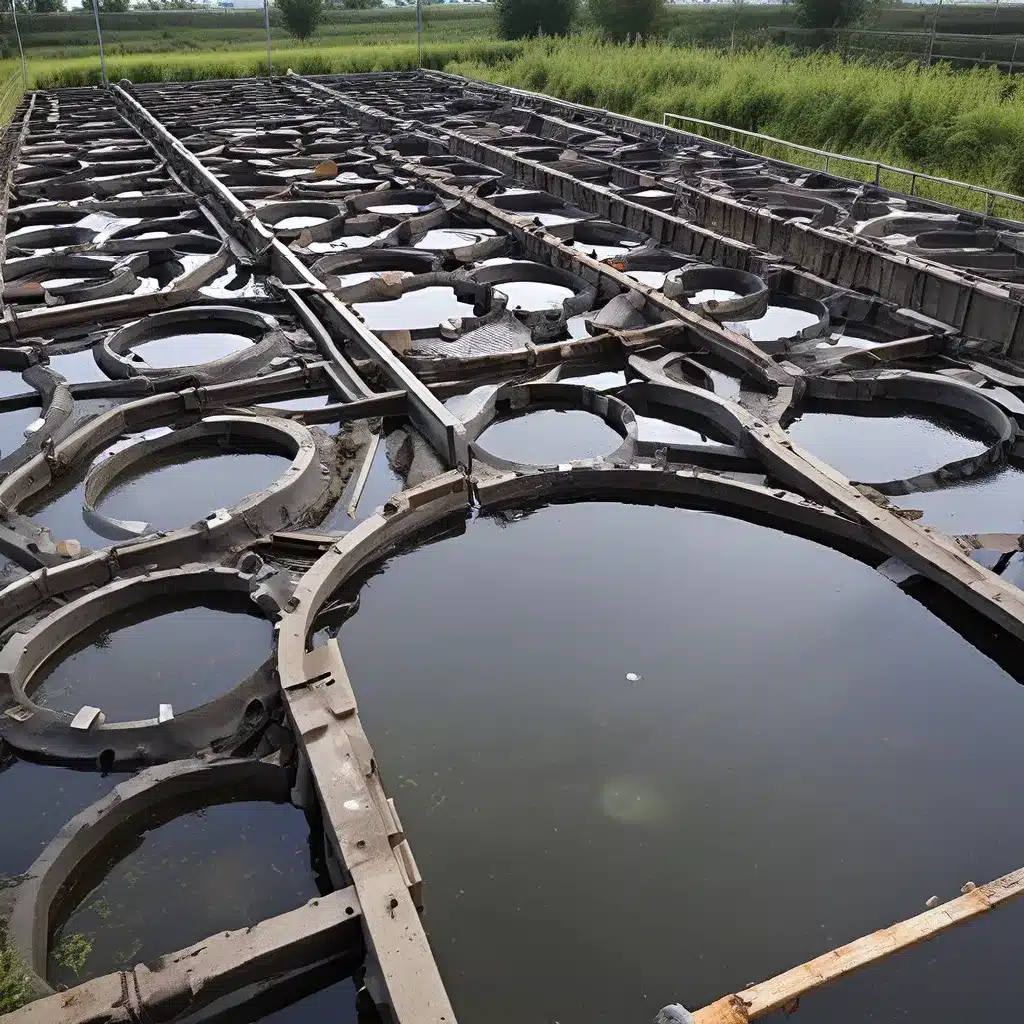
In a world where the resilience of our water systems is increasingly under threat from climate change and population growth, the future of wastewater reuse has never been more crucial. As an environmental enthusiast, I’ve been fascinated by the groundbreaking innovations and sustainable solutions emerging in this space. Join me as we explore the transformative world of wastewater reuse and uncover the strategies that will shape our water-secure tomorrow.
Managed Aquifer Recharge: A Multifaceted Approach to Water Security
Let’s start with a cutting-edge water management technique that’s capturing the attention of experts worldwide: Managed Aquifer Recharge (MAR). This innovative approach involves infiltrating or directly injecting water into aquifers, serving multiple purposes that are crucial for our future.
MAR can be a source of drinking water, support industrial processes, sustain irrigation, and maintain groundwater-dependent ecosystems. This multifaceted utility underscores its significance in our water portfolio, especially as we navigate the challenges of ensuring a reliable water supply amidst fluctuating climate conditions.
In Perth, Australia, MAR is enhancing resilience to future extremes by replenishing aquifers during wet periods and drawing from them during dry spells. This dynamic storage system helps the city adapt to the unpredictable effects of climate change, ensuring a steady water supply for its growing population.
Innovations in MAR are further enhancing its efficiency and feasibility, making it an increasingly critical tool in water management strategies. As we explore the future of wastewater reuse, this cutting-edge approach will undoubtedly play a pivotal role in securing our water resources and building a sustainable tomorrow.
The Dual Benefits of Water Recycling: Environmental Protection and Economic Value
Wastewater reuse is not just an environmental imperative – it’s also an economic opportunity. Water recycling transforms non-potable wastewater into a valuable resource, solving the dual challenges of water scarcity and environmental protection.
By treating and reusing wastewater for agricultural, industrial, and landscape irrigation, we significantly reduce the demand for freshwater sources and decrease the environmental impact of water extraction and treatment. It’s a win-win scenario that aligns with both ecological and economic goals.
In Queensland, Australia, the Urban Utilities program provides fit-for-purpose recycled water to its customers, tailoring the treatment process to meet the specific needs of each application. This not only conserves precious freshwater resources but also creates a new revenue stream for the utility, demonstrating the symbiotic relationship between environmental sustainability and economic viability.
Technological innovations in water recycling are making these processes more efficient and cost-effective, providing a robust framework for sustainable water management. As we navigate the future, these advancements will be crucial in transforming wastewater from a liability into a valuable asset.
Urban Resilience: Water Recycling as a Cornerstone for Climate-Proof Cities
As urban areas continue to grow and face the mounting pressures of climate change, water recycling emerges as a cornerstone for urban resilience. By embracing this innovative approach, cities can address their immediate water management needs and prepare for future challenges.
San Francisco’s Local Water Program is a shining example of how water recycling can future-proof a city from climate change and population growth. By investing in advanced treatment technologies and distribution infrastructure, the city has become more self-sufficient in its water supply, ensuring long-term sustainability and resilience against global change.
Innovations in water recycling go beyond just technology – they also encompass the integration of these systems into urban planning and policymaking. As cities strive to become more sustainable and adaptable, water recycling will be a critical piece of the puzzle, enhancing their ability to manage water resources efficiently and adapt to the challenges of the future.
Embracing the Future: A Call to Action for Water Sustainability
As we delve deeper into the future of wastewater reuse, it’s clear that the solutions and innovations we’ve explored are not mere pipe dreams – they are very much a reality, transforming the way we manage our most precious resource.
Water recycling, source protection, and trading programs are emerging as cornerstones of a more sustainable and resilient water future. These approaches not only address immediate challenges but also lay the groundwork for long-term adaptability in the face of climate change and population growth.
By embracing these innovative strategies and technologies, we are taking critical steps towards a future where water sustainability is at the heart of our environmental and economic resilience. It’s a future where wastewater is no longer a burden, but a valuable resource that can help us secure our water supply and protect our planet.
As an environmental enthusiast, I’m thrilled to see the progress being made in this field. But the work is far from done. Each of us has a role to play in shaping this future, whether it’s through advocacy, implementation, or simply raising awareness.
So, let’s dive in and explore the cutting-edge solutions that will transform the way we manage our water resources. The future of wastewater reuse is ours to create, and the time to act is now.


